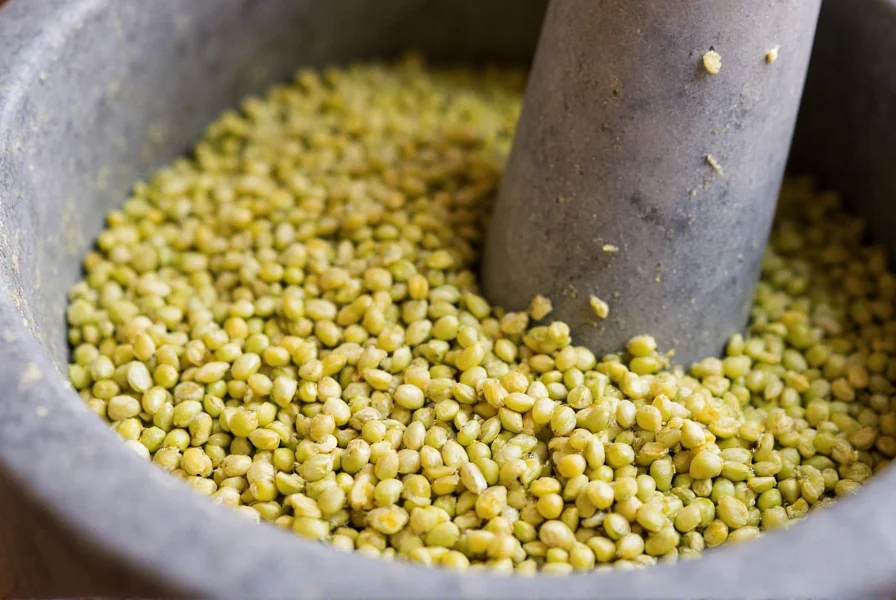Discover the simple art of preparing this ancient herbal remedy that has been used for centuries across Mediterranean and Asian cultures. Fennel tea offers a naturally sweet, licorice-like flavor while providing remarkable digestive support and other health benefits. Whether you're seeking relief from bloating, looking to improve digestion, or simply want to enjoy a caffeine-free beverage, learning how to make fennel tea properly ensures you maximize both flavor and therapeutic properties.
The Health Benefits Behind Fennel Tea
Fennel tea isn't just pleasant to drink—it delivers science-backed benefits. The active compound anethole gives fennel its distinctive flavor while providing anti-inflammatory and antispasmodic properties. Regular consumption may help reduce bloating, ease menstrual discomfort, improve respiratory function, and support healthy digestion by stimulating enzyme production. Unlike many herbal remedies, fennel tea is generally safe for children and adults alike when consumed in moderate amounts.
What You'll Need to Make Perfect Fennel Tea
Creating authentic fennel tea requires minimal ingredients but attention to quality:
| Ingredient | Recommended Amount | Why It Matters |
|---|---|---|
| Fennel seeds (whole) | 1-2 teaspoons per cup | Fresh, whole seeds retain essential oils better than pre-ground |
| Purified water | 8 ounces per serving | Avoid tap water with chlorine that can alter delicate flavors |
| Honey or lemon (optional) | To taste | Enhances flavor without compromising digestive benefits |
Step-by-Step Guide to Making Fennel Tea
Follow these precise steps for the best fennel tea preparation:
- Prepare the seeds: Lightly crush 1-2 teaspoons of fennel seeds using a mortar and pestle or the back of a spoon. This releases essential oils without making the tea bitter.
- Heat the water: Bring purified water to 200°F (93°C)—just below boiling. Excessive heat degrades delicate compounds.
- Steep properly: Pour hot water over crushed seeds and steep covered for 5-10 minutes. Longer steeping increases potency but may create bitterness.
- Strain carefully: Use a fine mesh strainer to remove all seed particles for a smooth drinking experience.
- Serve thoughtfully: Enjoy warm without milk. Add raw honey or lemon only after tea has cooled slightly to preserve beneficial enzymes.
Advanced Techniques for Superior Fennel Tea
For those seeking to perfect their fennel tea preparation, consider these professional tips:
- Seed selection matters: Choose greenish-brown fennel seeds with a sweet aroma—avoid yellowed or musty-smelling seeds which indicate age and reduced potency.
- Timing is crucial: Harvest fennel seeds when they turn from green to yellow-brown for maximum anethole content, typically in late summer.
- Storage secrets: Keep seeds in an airtight container away from light. Properly stored, they maintain potency for 6-12 months.
- Water quality impact: Use filtered water with balanced mineral content—too soft or too hard water affects extraction of beneficial compounds.
Popular Fennel Tea Variations
While traditional fennel tea stands beautifully on its own, these combinations enhance specific benefits:
| Variation | Ingredients | Primary Benefit |
|---|---|---|
| Digestive Relief Blend | Fennel + 1 slice ginger | Enhanced relief from bloating and gas |
| Respiratory Support Tea | Fennel + 1 tsp thyme | Clears congestion and soothes throat |
| Sleep-Inducing Blend | Fennel + 1 tsp chamomile | Promotes restful sleep without drowsiness |

When to Drink Fennel Tea for Maximum Benefits
Timing your fennel tea consumption significantly impacts its effectiveness:
- After meals: Drink within 30 minutes of eating to support digestion and prevent bloating
- Before bedtime: Enjoy 1-2 hours before sleep for its mild sedative properties
- During menstrual cycle: Consume at first sign of cramps for natural pain relief
- When traveling: Sip during flights or long drives to prevent motion sickness
Avoid drinking fennel tea on an empty stomach if you have a sensitive digestive system, as it may cause mild discomfort in some individuals. The optimal daily amount ranges from 1-3 cups depending on your specific needs and tolerance.
Common Mistakes to Avoid When Making Fennel Tea
Even experienced herbal tea makers sometimes make these critical errors:
- Using boiling water: Temperatures above 205°F degrade delicate therapeutic compounds
- Over-steeping: Beyond 10 minutes creates excessive bitterness without added benefits
- Using pre-ground seeds: Loses 60% of essential oils within hours of grinding
- Adding dairy: Milk proteins bind with beneficial compounds, reducing absorption
- Improper storage: Keeping seeds in clear containers exposes them to light degradation
Frequently Asked Questions About Fennel Tea
Can I make fennel tea from fresh fennel bulb?
Yes, though seed-based tea offers stronger therapeutic benefits. To make bulb tea, thinly slice 1/4 cup of fresh fennel bulb, add to 8 ounces of hot water, and steep for 5 minutes. The bulb provides milder flavor with different nutritional profile.
How long does homemade fennel tea stay fresh?
Freshly brewed fennel tea maintains optimal flavor and benefits for 24 hours when refrigerated in an airtight container. For longer storage, freeze in ice cube trays then transfer to freezer bags for up to 3 months. Thaw cubes in hot water when needed.
Is fennel tea safe during pregnancy?
Moderate consumption (1-2 cups daily) of fennel tea is generally considered safe during pregnancy and may help with common digestive issues. However, excessive amounts should be avoided as high concentrations of anethole may stimulate uterine activity. Always consult your healthcare provider before regular consumption.
Can children drink fennel tea?
Yes, fennel tea is commonly used to soothe infant colic and children's digestive issues. For children under 2, use half-strength tea (1/2 teaspoon seeds per cup) and consult a pediatrician. Children 2-12 can have 1/4-1/2 cup daily, while teens can consume standard amounts.
What's the difference between fennel tea and anise tea?
Though both have licorice-like flavors, they come from different plants. Fennel (Foeniculum vulgare) offers sweeter, milder flavor with broader digestive benefits, while anise (Pimpinella anisum) has stronger, more pronounced licorice taste. Fennel contains different therapeutic compounds making it safer for children and more versatile for digestive issues.










 浙公网安备
33010002000092号
浙公网安备
33010002000092号 浙B2-20120091-4
浙B2-20120091-4